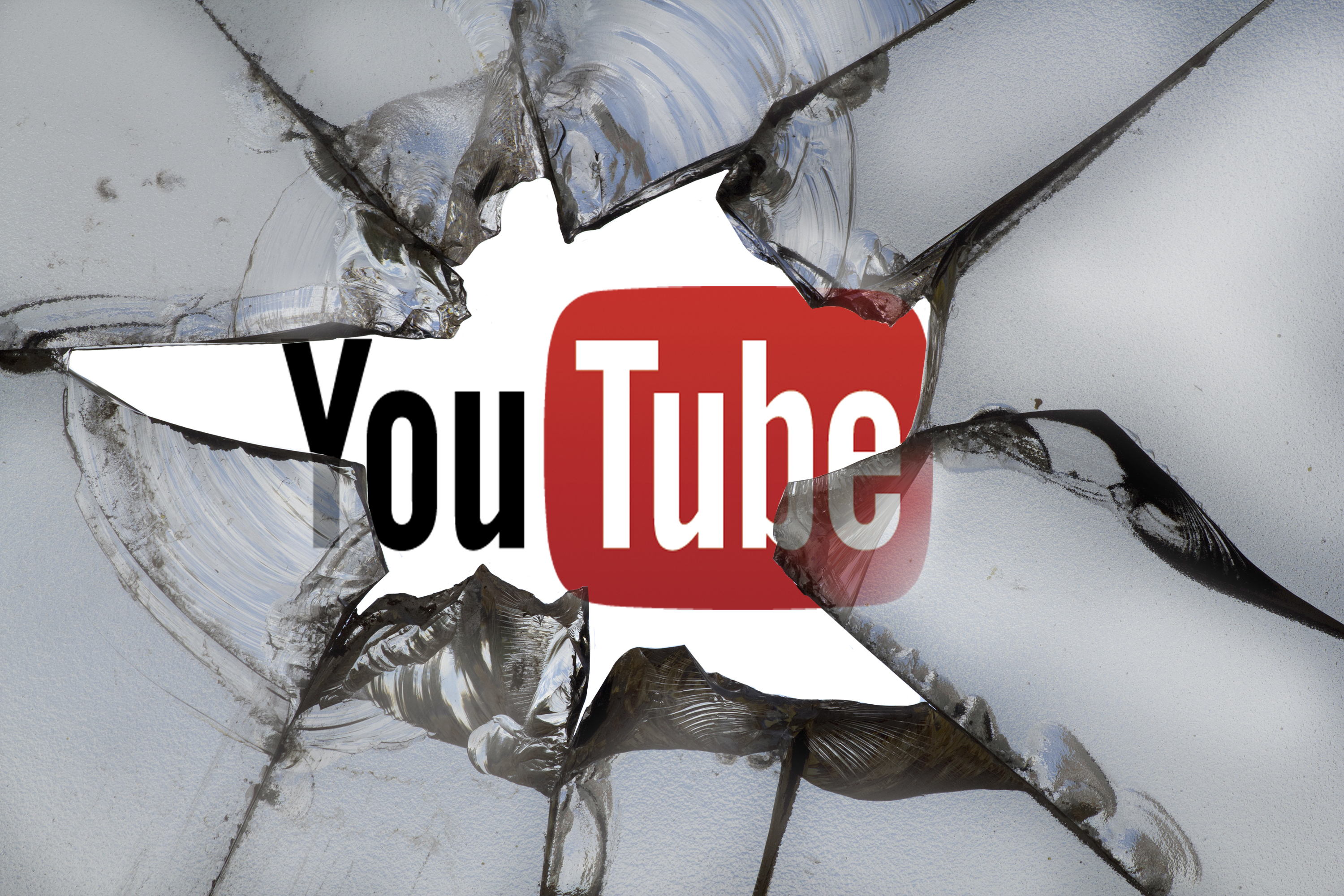Copyright laws are breaking YouTube. Here's how to fix the problem.
Where's the fair use?


YouTube stars have been up in arms over the last few weeks, relating stories of constant fights to protect their accounts from abuse of copyright law. Rallying under the slogan #WTFU (Where's the Fair Use?), they demand changes in how YouTube handles copyright claims.
But it's not just YouTube. The whole copyright system for online video is broken, allowing for obvious copyright infringement in some places, and punishing innocent people in others. Fixing it will require regulation to restore the protection of creativity.
First, it's important to understand that copyright is regulation. People often refer to copyright as something akin to land or physical possessions ("intellectual property"), but it just is a government-created monopoly enforced through legal coercion. With copyright there is no underlying physical object to protect — the policy is about restricting the right of others to make copies, not the right of access to scarce resources. As such, there is a trade-off between enriching the common cultural heritage — the public domain — and allowing authors to profit from their work.
The Week
Escape your echo chamber. Get the facts behind the news, plus analysis from multiple perspectives.

Sign up for The Week's Free Newsletters
From our morning news briefing to a weekly Good News Newsletter, get the best of The Week delivered directly to your inbox.
From our morning news briefing to a weekly Good News Newsletter, get the best of The Week delivered directly to your inbox.
The "Mickey Mouse Curve," showing how Congress keeps extending the copyright term just as Mickey Mouse was about to enter the public domain, demonstrates the basic truth of copyright in 2016: It's about making money for huge corporations. Original artists can also claim shelter under the basic framework, but that's little more than a coincidence.
That brings me back to YouTube, far and away the largest video hosting site on the internet, where thousands of entrepreneurs have made careers out of video production. This is the place where copyright realpolitik is being hashed out, and it bears barely any resemblance to the law. The major problem is "fair use." This is the part of U.S. law holding that people can legally copy portions of works verbatim under certain circumstances, such as critique, parody, commentary, reporting, or education.
A giant portion of YouTube's material is unquestionably fair use, protected even under the highly flawed Digital Millennium Copyright Act, which provides a legal basis for copyright holders to issue takedown notices of infringing content. The immense volume of content makes this a tricky problem, so YouTube has created a "Content ID" system to automatically detect the presence of copyrighted material. Content ID allows copyright holders several options to deal with allegedly infringing content. Most seriously, they can file official legal papers to YouTube, which puts a copyright "strike" on the account. Three strikes, and the entire account is permanently deleted.
However, the Content ID system gives holders other automated tools. They can mute the video's audio, or block it in countries where they hold the copyright in question. Content ID also allows holders to claim the ad revenue from infringing videos (or put ads on a video that didn't have them before). It's the revenue claim aspect of the system that's most important. It's a quasi-legal kludge that allows copyright holders to get paid for the use of their content without having to fill out hundreds of millions of licensing agreements, or file lawsuit after lawsuit attempting to protect their content.
A free daily email with the biggest news stories of the day – and the best features from TheWeek.com
However, these revenue claims are often abused by corporations and individuals, who routinely do not prove or even check whether content is fair use before issuing the claim. Companies that get bad press sometimes use the system to try to censor negative reviews or coverage. And because there is no penalty for a fraudulent claim, people often attempt to swipe the revenue from obvious fair use, or even from content they don't even own.
Abuse of takedown claims recently went to federal court in Lenz vs. Universal Music Corp, where the U.S. Court of Appeals for the Ninth Circuit upheld fair use, confirming that a copyright holder must consider fair use before issuing a takedown notice. That was in September of last year, and seemed to be paying dividends, as YouTube rolled out a preliminary system to protect fair use for certain videos.
But it hasn't gone anywhere. YouTube will defend people from minor league legal trolls, but it is silent on the abuse of claims by large companies. And in the meantime, the flaws in the algorithmic system have gotten worse. A striking example comes from film critic Doug Walker, from Channel Awesome, who received a copyright strike from Studio Ghibli based on an obviously fair use review of the movie My Neighbor Totoro. The channel's uploading privileges were sharply curtailed, and ad revenue was stripped from every single video. Attempts to contest the strike through YouTube's internal systems went nowhere; the company did not even respond for over three weeks. Only after Walker complained publicly in a video that got massive attention did YouTube fix things.
The irony of this is that the review was a recommendation of the movie, the kind of thing film studios would pay money to get. It's strong evidence that the entire story was driven by bad algorithms on both sides. The fact that the system could threaten a channel as large as Channel Awesome — with some 430,000 subscribes — suggests that Content ID is starting to break at the seams, leading Walker and others to start the #WTFU campaign.
Meanwhile, stone obvious copyright infringement is a huge fraction, possibly even a majority, of Facebook's burgeoning video operation. When it first started video, Facebook had no Content ID system, and so video "freebooters" (which can include very large companies) deluged the site with ripped-off content. In a stunning coincidence, Facebook's takedown process is janky and arduous enough that by the time the video is taken down, it has already gotten most of the views it's going to receive. (Facebook has a prototype of a Content ID-style system, but it doesn't work very well yet.)
So on the one hand, the law of fair use is being flagrantly ground into dirt, and on the other, the biggest social media company in the world is bootstrapping a video service with blatantly ripped-off content.
Online copyright needs new regulation from Congress. The existing legal framework is clearly failing to function as designed, and the profit motive is shockingly not pushing corporations to abide by existing law. Though last time Congress tried to update online copyright, they tried to make it into even more of a dystopian nightmare than it already is, the basic sketch of the needed principles is fairly clear. Large video hosting services should be required to implement a Content ID-style system, but the protections for fair use and due process need to be sharply strengthened. In particular, frivolous or abusive takedown requests should carry a risk of punishment or legal damages. Protecting creativity ought to return to the copyright legal tradition.
Ryan Cooper is a national correspondent at TheWeek.com. His work has appeared in the Washington Monthly, The New Republic, and the Washington Post.
-
 How space travel changes your brain
How space travel changes your brainUnder the Radar Space shifts the position of the brain in the skull, causing orientation problems that could complicate plans to live on the Moon or Mars
-
 How Iran protest death tolls have been politicised
How Iran protest death tolls have been politicisedIn the Spotlight Regime blames killing of ‘several thousand’ people on foreign actors and uses videos of bodies as ‘psychological warfare’ to scare protesters
-
 Departure(s): Julian Barnes’ ‘triumphant’ final book blends fact with fiction
Departure(s): Julian Barnes’ ‘triumphant’ final book blends fact with fictionThe Week Recommends The Booker prize-winning novelist ponders the ‘struggle to find happiness and accept life’s ending’
-
 How do you solve a problem like Facebook?
How do you solve a problem like Facebook?The Explainer The social media giant is under intense scrutiny. But can it be reined in?
-
 Microsoft's big bid for Gen Z
Microsoft's big bid for Gen ZThe Explainer Why the software giant wants to buy TikTok
-
 Apple is about to start making laptops a lot more like phones
Apple is about to start making laptops a lot more like phonesThe Explainer A whole new era in the world of Mac
-
Why are calendar apps so awful?
The Explainer Honestly it's a wonder we manage to schedule anything at all
-
 Tesla's stock price has skyrocketed. Is there a catch?
Tesla's stock price has skyrocketed. Is there a catch?The Explainer The oddball story behind the electric car company's rapid turnaround
-
 How robocalls became America's most prevalent crime
How robocalls became America's most prevalent crimeThe Explainer Today, half of all phone calls are automated scams. Here's everything you need to know.
-
 Google's uncertain future
Google's uncertain futureThe Explainer As Larry Page and Sergey Brin officially step down, the company is at a crossroads
-
 Can Apple make VR mainstream?
Can Apple make VR mainstream?The Explainer What to think of the company's foray into augmented reality
